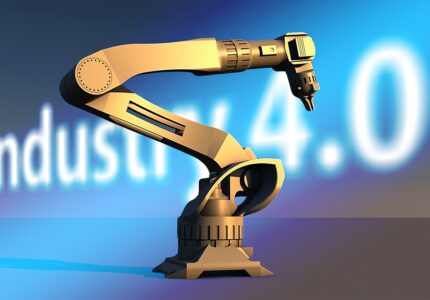Artificial Intelligence and the Future of Work: Transforming the Workforce
As we advance into the 21st century, Artificial Intelligence (AI) stands at the forefront of a transformative wave reshaping the workforce in unprecedented ways. This evolution is not just about replacing human tasks with machines but is about enhancing productivity, creating new opportunities, and redefining the essence of work itself.
1. The Integration of AI Across Industries
AI technology is increasingly becoming a cornerstone in various industries, revolutionizing how businesses operate and deliver services. In healthcare, AI-powered systems are significantly improving diagnostic accuracy and patient care. For example, machine learning algorithms can analyze medical images to detect diseases such as cancer at early stages, providing doctors with vital insights for treatment planning.
In the financial sector, AI algorithms are employed to predict market trends, assess risks, and optimize investment strategies. Financial institutions use AI to detect fraudulent activities, thereby enhancing security and efficiency. Similarly, the retail industry leverages AI for inventory management, personalized customer experiences, and targeted marketing campaigns, driving growth and customer satisfaction.
2. Job Displacement vs. Job Creation
A prominent concern regarding AI is its potential impact on employment. While automation and AI technologies may lead to the displacement of certain job roles, they simultaneously generate new opportunities. For instance, roles in AI development, machine learning, and data analysis are increasingly in demand. The automation of routine tasks in manufacturing and clerical jobs allows for the creation of positions that focus on overseeing, maintaining, and improving these technologies.
The shift towards AI-driven industries necessitates a workforce that is adaptable and skilled in new technologies. Traditional job roles may diminish, but the emergence of new job categories offers a chance for career growth and development in tech-centric fields. The challenge lies in ensuring that workers can transition smoothly into these new roles through effective upskilling and reskilling programs.
3. The Importance of Upskilling and Reskilling
To effectively navigate the changing job landscape, workers need to embrace continuous learning. Upskilling and reskilling initiatives are crucial for preparing the workforce for the demands of the AI-driven economy. Educational institutions, businesses, and online platforms are increasingly offering training programs to equip individuals with skills in AI, data science, and digital technologies.
These programs aim to bridge the skills gap by providing learners with practical knowledge and hands-on experience. For example, coding bootcamps and online courses in machine learning and data analytics are becoming popular among professionals seeking to enhance their skill sets. Lifelong learning is now a key component of career development, ensuring that individuals remain competitive and adaptable in a rapidly evolving job market.
4. Enhancing Human Capabilities Through AI
AI is not solely about replacing human labor; it also has the potential to augment human capabilities. Collaborative AI systems are designed to complement human skills, enabling workers to focus on higher-level tasks that require creativity, critical thinking, and emotional intelligence. For instance, AI-powered tools can assist in data analysis by providing actionable insights and recommendations, allowing professionals to make informed decisions.
In creative industries, AI is being used to enhance content creation and design. Tools like generative algorithms can produce artistic works, while AI-driven platforms help designers and marketers develop innovative campaigns. This collaboration between humans and machines fosters a dynamic work environment where both can leverage their strengths to achieve greater outcomes.
5. Addressing Ethical Considerations
As AI technology advances, ethical considerations become increasingly important. Issues such as data privacy, algorithmic bias, and the potential for job displacement must be addressed to ensure that AI benefits society as a whole. Policymakers, businesses, and technologists need to work together to create ethical guidelines and regulations that promote responsible AI development.
Data privacy is a critical concern, as AI systems often rely on vast amounts of personal information. Ensuring that data is protected and used transparently is essential for maintaining public trust. Algorithmic bias, which can lead to unfair treatment and discrimination, must be mitigated through rigorous testing and oversight.
Conclusion
The integration of AI into the workforce represents both a challenge and an opportunity. While there are concerns about job displacement, the advent of AI also opens up new avenues for career growth and innovation. By investing in upskilling and reskilling, fostering collaboration between humans and machines, and addressing ethical issues, we can harness the full potential of AI to create a more productive and equitable future of work. Embracing this transformation with a proactive and adaptive mindset will be key to navigating the evolving landscape and ensuring that AI serves as a catalyst for positive change.





